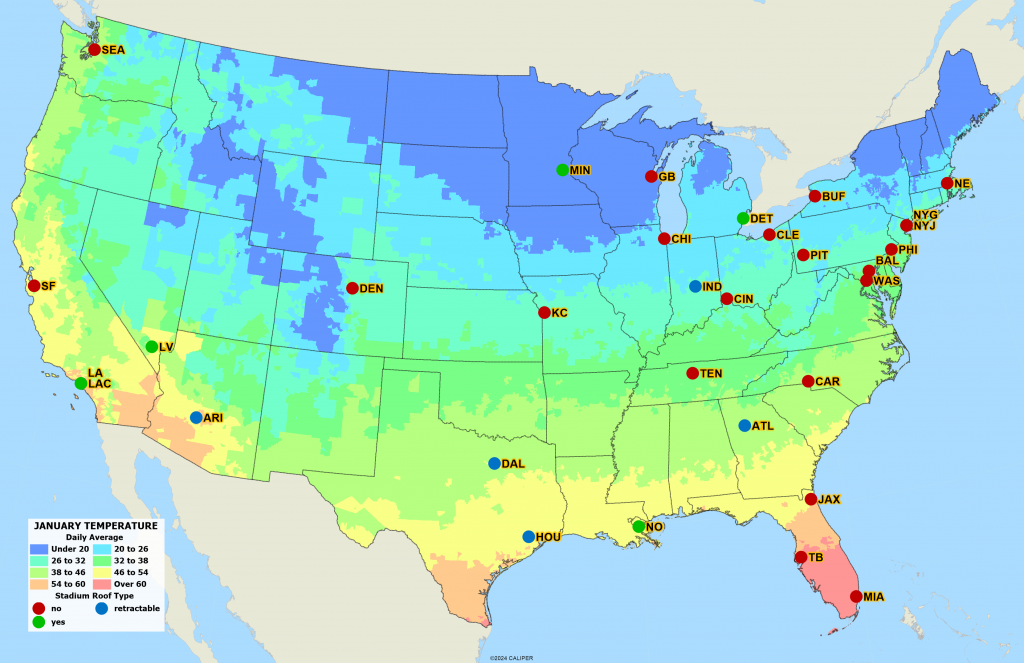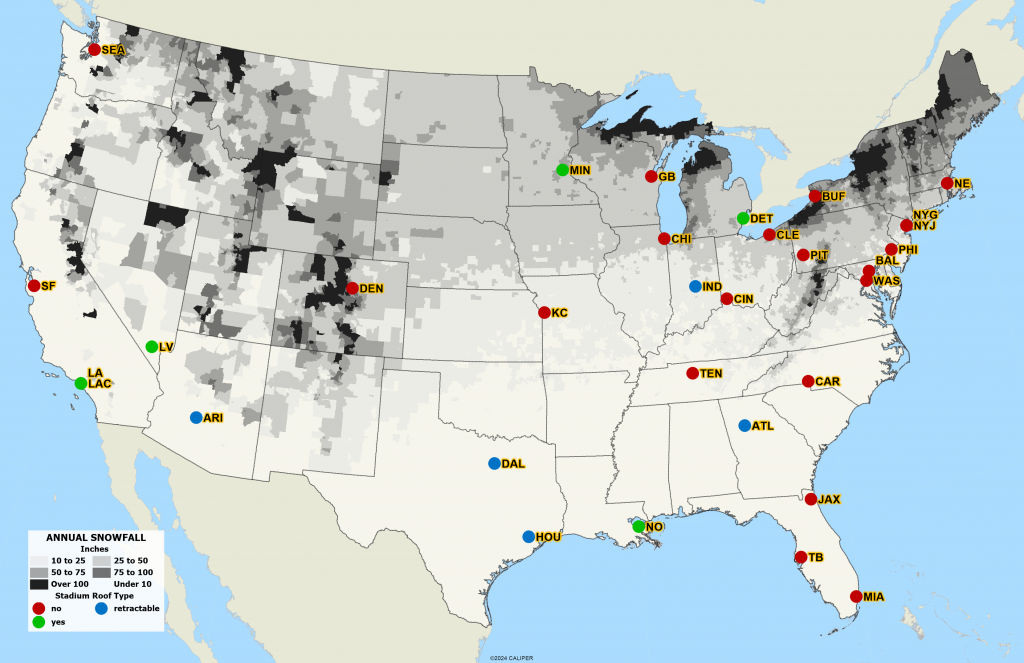A few weeks ago, the San Francisco 49ers played the Buffalo Bills in an epic game after Highmark stadium was buried in 2 feet of snow. The snow was so heavy before the game that they paid fans $20 an hour to shovel snow inside the stadium to get it ready. Obviously, the Bills are far more accustomed to playing in cold temperatures, but would that make a difference in the outcome of the game? And does it make an impact on who you should start for your fantasy team? We looked at our environmental data for more information.
Of course, we need to look at the annual snowfall totals and the average January temperature (typically the coldest month that football is played in) to see where these bad weather games are played. On the maps, we also note where the stadiums with roofs are located, either retractable or permanent. As it turns out, roofs appear to be for the comfort of the patrons, and not the players, as most of the covered stadiums are in the warmer parts of the country. Indoor stadiums also account for higher scoring games, averaging 4 points per game higher than games played in outdoor arenas. The first map, average temperature in January, shows what you would expect: the Vikings and Packers play in very cold weather, well below freezing, with teams north of Denver and Kansas City playing in cold weather as well, but typically closer to freezing. The second map, showing snowfall, follows a similar pattern, but with cities north of Denver, but especially Buffalo and Cleveland receiving heavy amounts of snowfall.


We couldn’t find exact data on the impacts of weather on game outcomes, mostly anecdotal data that comes out how you expect it to, that southern teams don’t perform well in snow games. However, we do think that weather should be taken into consideration when planning your fantasy football starting roster. So, based on our weather data knowledge, here is our advice. Avoid the kickers who play in the snow, pick your 2nd choice for those games, and always pick a kicker if they are playing in a domed arena, the lack of wind helps them tremendously. Choose running teams over passing teams in those heavy snow games and rain games. On defense, a snow game is advantageous, since the opposing team shouldn’t score as often.
